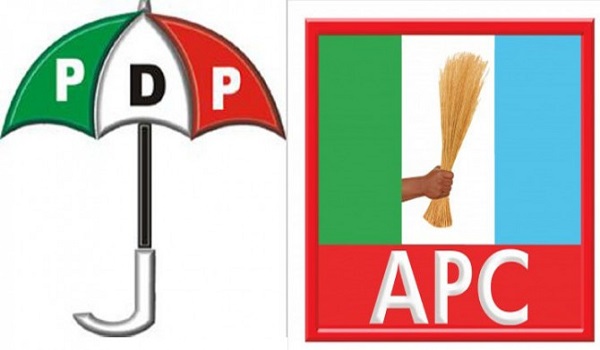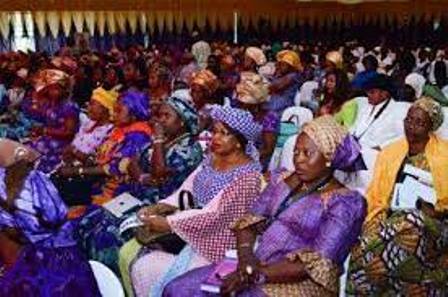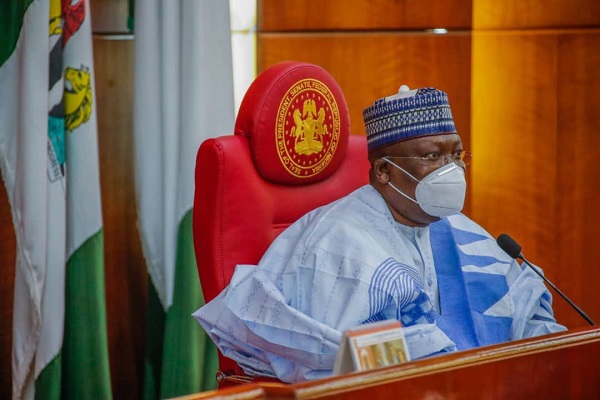APC And The Failure Of Leadership


With widespread corruption, heightened insecurity, worsening economic problems, petrol scarcity, epileptic power supply and academic paralysis in Nigerian universities, the ruling All Progressives Congress (APC) will be going into the next general election with an overload of incumbency disadvantage. In the nearly seven years it has been in power since 2015, the APC has become synonymous with “All Promises Cancelled” as it has failed to fulfil any of its campaign promises of fixing the economy, combating insecurity and tackling corruption. The democratic ‘change’ revolution that swept the former ruling People’s Democratic Party (PDP) out and brought the APC into power in 2015 has been betrayed due to failure of leadership of the chief beneficiaries. If the PDP was bad, the APC has been worse. And by the end of its eight-year stay in power in 2023, the APC would have left Nigeria worse than they met it in 2015.
Interestingly, APC’s failure of leadership is not limited to its inability to deliver on its promise of good governance alone. Its failure actually begins from the home front, as clearly seen in the inability of the ruling party to conduct its internal affairs according to its own rules, including a national convention.
Like the PDP before it, the pre-2015 broad structures of the APC have been narrowed down to the parochial and self-serving interests of its governors, to the exclusion of the overwhelming majority of its members and other critical stakeholders. So powerful are the governors that the APC has been led in the last two years by Mai Mala Buni, the governor of Yobe State, just as its decisions have been dominated by the Progressive Governors’ Forum of the party. However, the fall of the APC from its Olympian heights to a crisis-riddled Lilliputian party can be blamed on the man who handed over the party to the governors, President Muhammadu Buhari.
The political party is the most important organ of a democracy, more important than the executive, legislature and the judiciary, because the individuals that will run these arms of government are direct and indirect products of the political parties.
As there cannot be democracy without politics, the political parties are the basic platforms for the leadership recruitment process of the political leadership of any constitutional democracy anywhere in the world because the choice before the general voting public is usually limited to candidates that have emerged from party primary elections. This is why the political party must be a harbinger of democratic best practices, leadership values that should also serve as an incubation ground for its ideals, ideologies and pragmatic ideas on how to improve the welfare and security of the people. And the political party administration at all levels must be by patriotic individuals with a passion for the advancement of democratic good governance, in line with the ideals of the party.
Most importantly, these individuals must be elected directly by members of the party and not selected by a few powerful elements in the party, just as those elected into political leadership positions are expected to embody its ideals, guided by its ideologies in the implementation of policies and programmes that are geared towards the improvement of the welfare and security of the people. And within a sustainable framework of good governance is the reward for political
Without the option of independent candidacy, political parties are even more important in Nigeria. Unfortunately, since the advent of the Fourth Republic in 1999, the political parties in Nigeria have been everything but political parties in the true sense of the word. The corruption and impunity that reigned supreme in the former ruling PDP, which reduced the political process to a criminal franchise of power-grab for self-service at the expense of the public treasury, contributed greatly to the decadence in public administration in the first 16 years of democratic rule in Nigeria since 1999. In the absence of good governance, the political class in Nigeria devised a very corrupt patronage system of reward for political participation. However, by 2015 when the Nigerian people voted out the PDP in favour of the APC, it was hoped that the largest democracy in Africa would witness a turnaround in its democratic fortunes for the better. Sadly, it turned out worse.
Perhaps, oblivious of the importance of the political party in the actualization of democratic governance as well as his responsibility as the leader of his party, President Buhari has allowed the APC to degenerate into an undemocratic “disorganinazation” that is bereft of any shred of ideology and principles of democratic good governance.
Rather than transform the APC into an ideological movement that could mobilize Nigerians to align their individual but legitimate social, economic and environmental interests with their democratic choices away from their ethnicity or religion, President Buhari has plunged his party deeper into the abyss of identity politics of ethnicity and religion by his elevation of sectionalism to a near-state policy. Like the PDP before it, the APC has been hijacked by political dealers and hitmen whose investment in procuring party platforms yields profit in the form of state capture.
Having failed to even marginally improve the welfare and security of the Nigerian people through a sustainable democratic good governance framework, a corrupt system of patronage in the form of government appointments for politicians, public service jobs for their children and contracts for their wives has become the reward for political participation. The mortal combat within the APC for the control of its structures at all levels is a manifestation of the internal contestation for power to decide who gets what, when and how from the national cake in post-2023 Nigeria. With the main opposition PDP not offering any credible alternative, Nigeria’s democracy may remain in the captivity of political dealers pretending to be leaders.
From a formidable political movement of some of Nigeria’s most progressive elements at its inception in 2013, the APC has been reduced to an undemocratic political contraption where impunity reigns freely.




